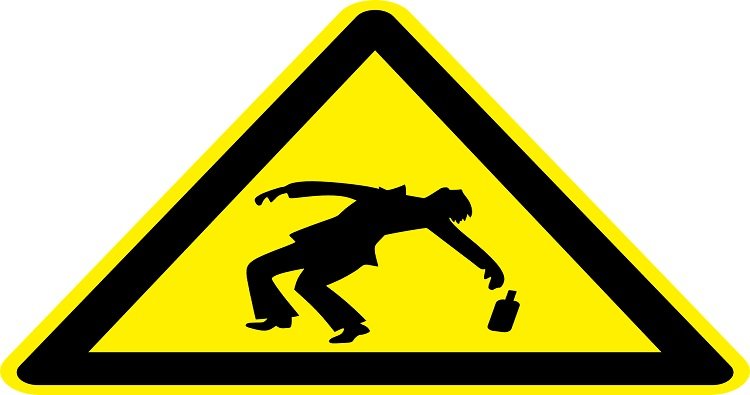- + 91 9958444373
- Malviya Road Dehradun, UK, India.
Blogs detail

Alzheimers Disease
- 2020-08-20
Alzheimer’s disease is the most common disease that causes mental decline, confusion, and destroys many mental functions. It has been estimated that more than 4 million people in India are suffering from Alzheimer’s. India is the third highest caseload country of Alzheimer’s in the world. The burden of Alzheimer’s in India is estimated to reach almost 7.5 million by the end of 2030.
Keep reading to learn more about Alzheimer’s disease.
ALZHEIMERS DISEASE
[1]Alzheimer’s disease is an irreversible, progressive brain disorder that slowly destroys memory and thinking skills, and, eventually, the ability to carry out the simplest tasks.
It is a neurological disorder in which the brain cells die which leads to memory loss and cognitive decline. This disease gradually starts and worsens over time. A person suffering from Alzheimer’s disease requires full-time assistance and it is difficult for them to perform simple tasks.
Alzheimer’s disease causes brain cells to degenerate (waste away) and die. Alzheimer’s disease is a common cause of dementia.
CAUSES OF ALZHEIMER’S DISEASE
Alzheimer’s disease does not develop from a single cause but has multiple factors in its contribution.
Age, Genetics, Family History, Lifestyle, all contribute to being the causes of the disease along with other factors.
Age: It has been researched that age has been the main cause of the disease. Individuals of age 65 and above are most affected by Alzheimer’s and the risk doubles every 5 years.
Genetics: Genes are involved in Alzheimer’s disease. Alzheimer’s is found in both risk genes and deterministic genes. 1% of Alzheimer’s cases are known to be caused by deterministic genes.
Family History: Family History is another strong risk factor for Alzheimer’s disease. If an individual’s parent or sibling is suffering from Alzheimer’s, there is a huge risk for the individual to develop Alzheimer’s disease.
Lifestyle: Not maintaining a healthy lifestyle can also play an equal part in developing Alzheimer’s disease. Being Obese, lack of exercise, poor sleep patterns, high blood pressure and diabetes, smoking are all lifestyle habits that are included in the risk factor and are associated with Alzheimer’s disease.
Other Factors: There are other factors associated with Alzheimer’s disease too. Factors such as head injury, brain surgery, heart to head connection, head trauma can lead an individual to Alzheimer’s disease
STAGES OF ALZHEIMER’S DISEASE
An individual with Alzheimer’s disease undergoes 7 stages starting from no impairment to a very severe decline.
Stage 1: No Impairment: In the very first stage, the Alzheimer’s is not detected, no symptoms are present.
Stage 2: Very Mild Decline: In the second stage minor memory problems may begin and the individual may lose things around the house.
Stage 3: Mild Decline: Cognitive Problems are noticeable and can be detected.
Stage 4: Moderate Decline: Clear-cut symptoms are present and are also apparent.
Stage 5: Moderately Severe Decline: The individuals may require assistance in performing many daily tasks although functionality is still present.
Stage 6: Severe Decline: Constant supervision becomes important and also individuals in Stage 6 require frequent professional care.
Stage 7: Very Severe Decline: The final stage of Alzheimer’s disease. Individuals in this stage lose the ability to communicate and respond to the environment. Individuals in the final stage of Alzheimer’s are nearing death.
SYMPTOMS OF ALZHEIMER’S DISEASE
The common symptoms of Alzheimer’s disease are mental decline, difficulty in thinking patterns, confusion (mostly during evenings), forgetfulness, mental confusion, delusions.
The minor symptoms are noticeable in stage 2 and are more prominent in stage 3 of the disease. The symptoms evident in every stage are:
Stage 1: No Impairment: No symptoms are evident.
Stage 2: Very Mild Decline: Minor symptoms are visible such as forgetting things around the house.
Stage 3: Mild Decline: In stage 3 the individual faces problems in finding the right words during a conversation, organizing and planning, and remembering names of acquaintances.
Stage 4: Moderate Decline: Clear-cut symptoms being more evident, the individual has difficulty in performing simple arithmetic, difficulty in managing bills and finance, cannot remember what they ate for breakfast.
Stage 5: Moderately Severe Decline: In stage 5, individuals have difficulty in dressing up on their own, there is significant confusion and they are unable to recall their own simple details.
Stage 6: Severe Decline: When an individual is in Stage 6 of the disease, major personality changes and behavior problems develop, the individual becomes confused and unaware of his surroundings, he is unable to recognize faces except for the closed ones, and it is difficult for them to remember personal details, wandering, and loss of bladder control. In stage 6, the individual requires constant care and assistance to perform daily activities.
Stage 7: Very Severe Decline: Stage 7 is the final stage in which the individual loses the ability to communicate and respond to the environment, he may also lose the ability to swallow.
DIAGNOSIS OF ALZHEIMER’S DISEASE
A Physician, a Neurologist, or a Clinical Psychologist may diagnose the individual for Alzheimer’s disease. The doctor takes a physical examination enquiring about the symptoms and the past and current health status. Apart from the physical examination, the doctor may also take a mental examination that would help in examining the individual’s memory, attention, problem-solving ability, and counting skills.
TREATMENT OF ALZHEIMER’S DISEASE
Alzheimer’s disease does not have a permanent cure but medications and therapy may help in dealing with the symptoms and improving the lives.
- Medications: A physician may prescribe Cognitive Enhancing Medications that improve mental functioning, balance mood.
- Therapies: Therapies involve management strategies that help in dealing with the day to day symptoms.
[1] https://www.nia.nih.gov/health/alzheimers-disease-fact-sheet
Contact now
We are a group of health professionals, including Psychologists, Clinical psychologist, Rehabilitation Psychologist, Counsellors, Mindfulness Experts and Social Workers. We are working since 2018 in India to foster mental health.
Contact Us
recent blogs
-

SADNESS AND DEPRESSION ARE DIFFERENT!
2020-06-16 -

ALCOHOL USE DISORDER (AUD)
2020-06-19 -

SEASONAL AFFECTIVE DISORDER (SAD)
2020-06-12 -

UNDERSTANDING MINDFULNESS MEDITATION
2020-06-03 -

BURDEN OF DEPRESSION
2020-06-17







